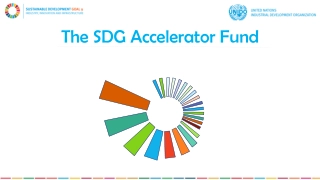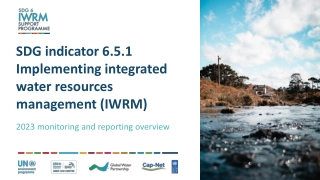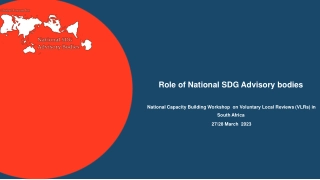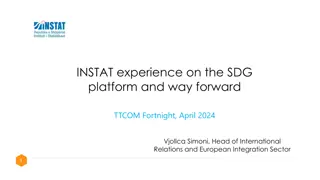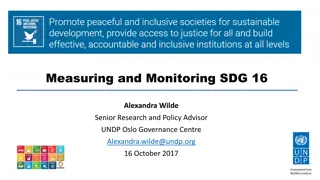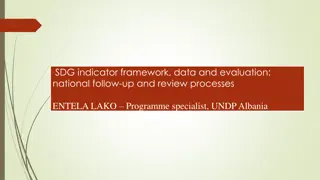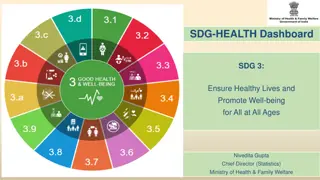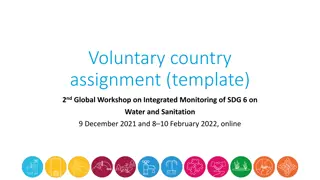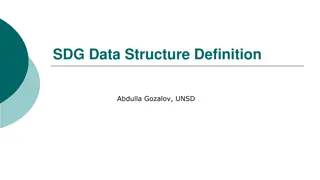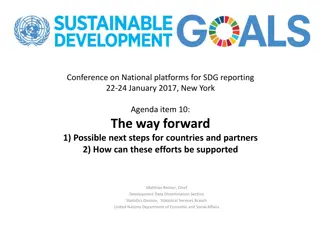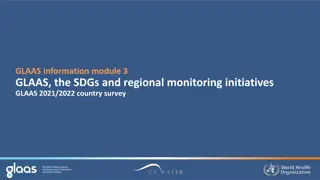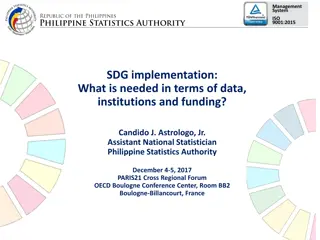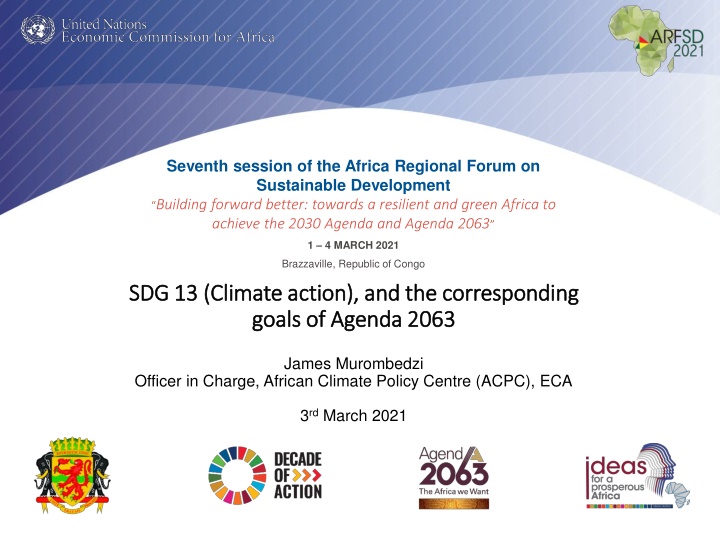
Climate Change Impacts on Africa: Challenges and Solutions
The Seventh Session of the Africa Regional Forum highlighted the severe impacts of climate change on Africa, affecting economies, ecosystems, and livelihoods. With predictions of varying weather patterns and extreme events, African countries are facing challenges in achieving sustainable development goals. Low adaptive capacity and limited access to climate funds further exacerbate the situation. Urgent action is needed to address these issues and transition towards a resilient and green Africa.
Download Presentation

Please find below an Image/Link to download the presentation.
The content on the website is provided AS IS for your information and personal use only. It may not be sold, licensed, or shared on other websites without obtaining consent from the author. If you encounter any issues during the download, it is possible that the publisher has removed the file from their server.
You are allowed to download the files provided on this website for personal or commercial use, subject to the condition that they are used lawfully. All files are the property of their respective owners.
The content on the website is provided AS IS for your information and personal use only. It may not be sold, licensed, or shared on other websites without obtaining consent from the author.
E N D
Presentation Transcript
Seventh session of the Africa Regional Forum on Sustainable Development Building forward better: towards a resilient and green Africa to achieve the 2030 Agenda and Agenda 2063 1 4 MARCH 2021 Brazzaville, Republic of Congo SDG 13 (Climate action), and the corresponding SDG 13 (Climate action), and the corresponding goals of Agenda 2063 goals of Agenda 2063 James Murombedzi Officer in Charge, African Climate Policy Centre (ACPC), ECA 3rd March 2021
Climate change Impacts in Africa Climate change is disrupting national economies, ecosystems and livelihoods. Africa faces the greatest impacts from climate change, including predicted decreases in precipitation in Northern and South-Western South Africa, while the Ethiopian Highlands are likely to record increases in rainfall by the end of the twenty-first century. More frequent and intense tropical storms and cyclones, recurring droughts and rising sea levels are also forecasted Climate change directly impacts the ability of the continent to achieve any of the Sustainable Development Goals and to meet the aspirations of Agenda 2063
Long-term impacts of climate change on Africas GDP (% change/year) According to four global temperature increase scenarios for the five sub-regions and for the whole of Africa.
Low adaptive capacity African countries have low capacities to adapt to climate change Countries also have low access to climate funds for adaptation Because of growing climate change impacts and limited external funding, countries are forced to spend between 2-9% of their national incomes on climate adaptation This negatively affects development, and has been worsened by COVID-19 In addition to adaptation, member states require additional financial and capacity support for low emissions development
GDP as a function of emissions for three types of economies: normal, green & carbon intensive Source: ACPC
Key trends and progress towards achievement of the set targets of the given SDGs To have a chance to attain the 1.5 degrees warming target. GHG emissions should be reduced by 45 per cent from 2010 levels by 2030 and reach net zero emissions by 2050 (IPCC). This means that GHG emissions must begin falling by 7.6 per cent each year, starting in 2020. This requires rapid, far-reaching and unprecedented changes in all aspects of society. The UNFCCC Initial NDC Report of 2021 shows that the combined impact of NDCs submitted by December 2020 puts us on a path to achieve a less than 1 per cent emission reduction by 2030 compared to 2010 levels.
Key trends and progress towards achievement of the set targets of the given SDGs The AUC, supported by the UNECA and other partners is finalizing the Africa Climate Change Strategy (2020 2030) The strategy is designed to be a framework to guide climate actions in member States towards low emissions development The challenges to be addressed include: Leveraging adequate means of implementation for transitioning to low emissions pathways; Integrating climate information services into development processes Engaging all stakeholders, including the private sector, civil society and the youth. Just transition, including ensuring that major emitters step up their climate ambition
THANK YOU! www.uneca.org/arfsd2021 Follow the conversation: #ARFSD2021

